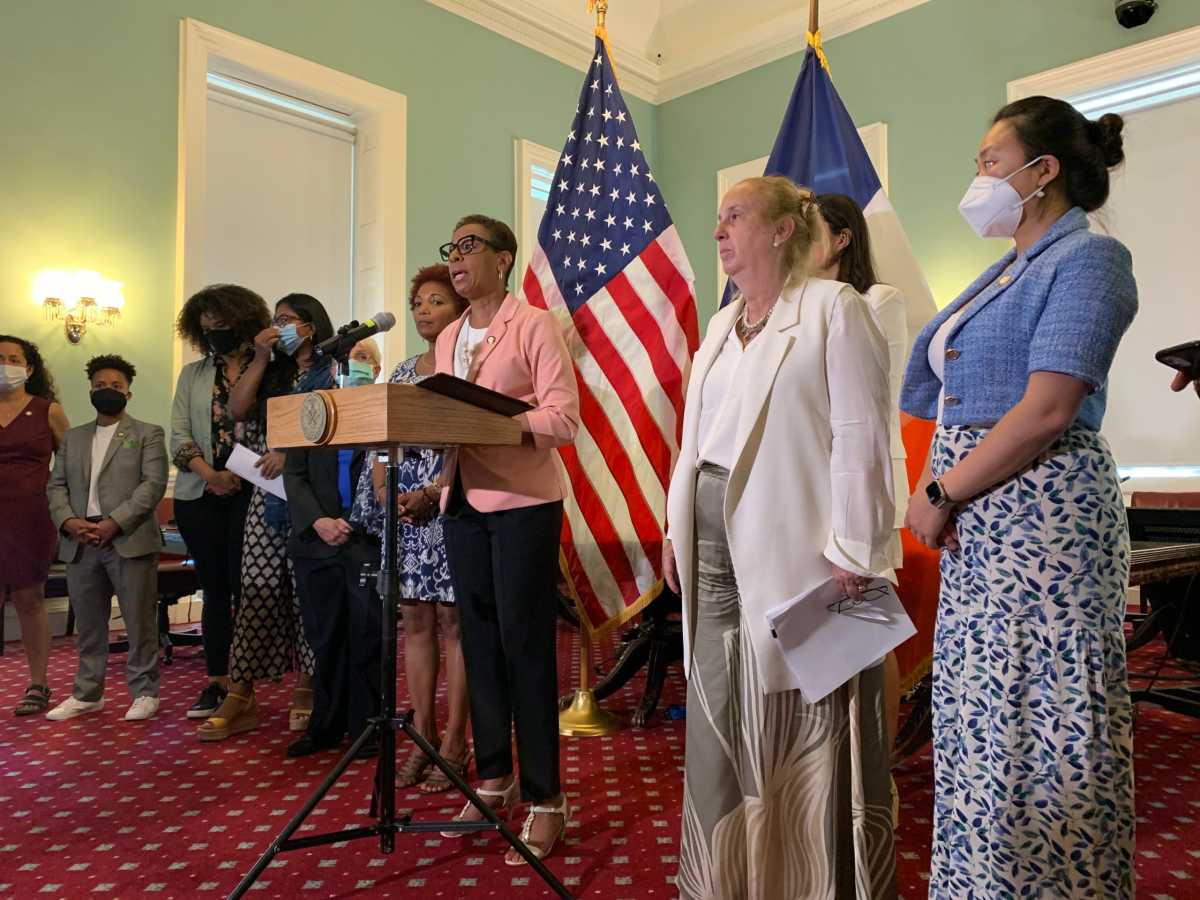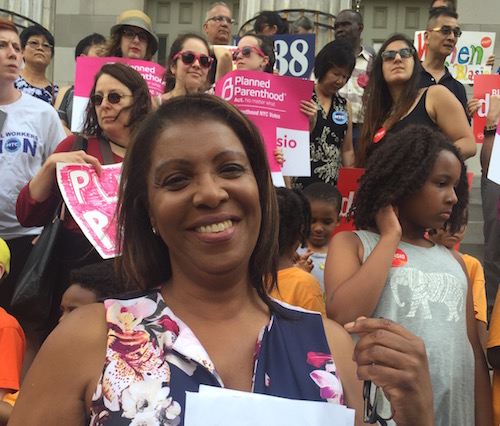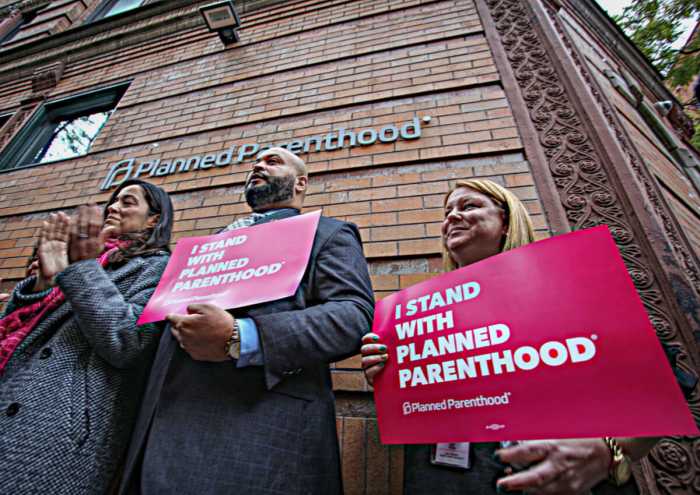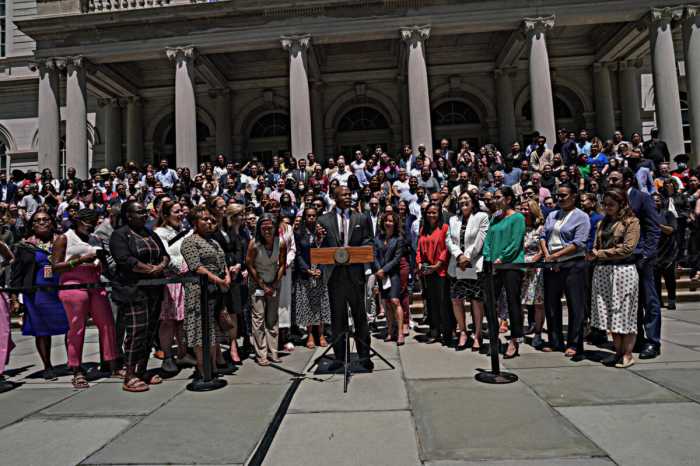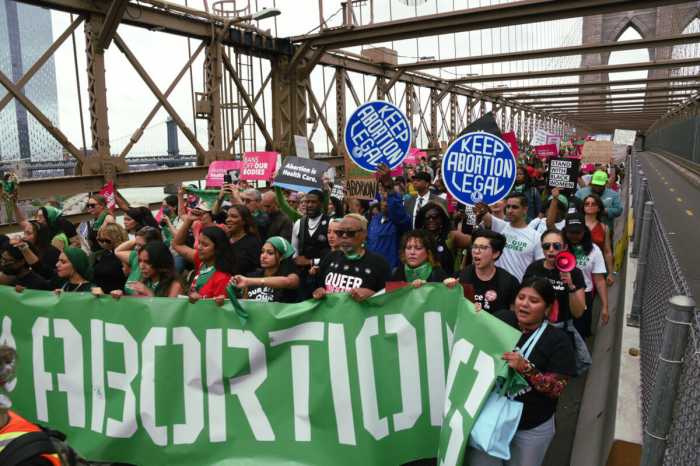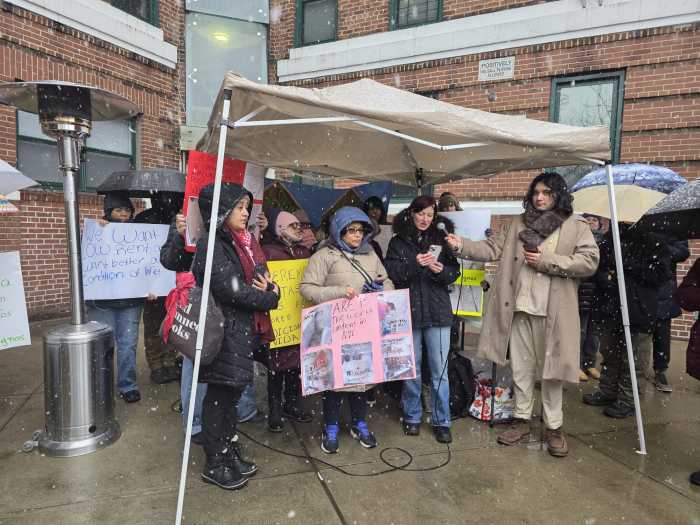Following the U.S. Supreme Court’s ruling striking down national abortion rights last month, the majority-women City Council Thursday passed a package of bills aimed at protecting and expanding abortion access in the city.
The legislative package, dubbed the “NYC Abortion Rights Act,” includes bills that would require the city to subsidize abortion medications at its clinics, prevent city agencies from detaining those who perform the procedures and increase public awareness about anti-abortion centers. Each of the bills in the package passed the council by either a 42-6 or 41-7 vote with the nay votes coming from the council’s five Republican members, joined by conservative Democrats Robert Holden (D–Queens) and sometimes Kalman Yeger (D–Brooklyn).
During a press conference ahead of the council’s Stated Meeting where the bills were passed, City Council Speaker Adrienne Adams said the package is a direct response to the court’s decision in Dobbs v. Jackson Women’s Health that overturned Roe v. Wade – the 1973 ruling that protected national abortion rights.
“This council is taking action to safeguard abortion and advance reproductive health care in New York City,” the speaker said. “The right to safe and legal abortion is a fundamental human right and must be protected for all who seek reproductive health care, especially in the aftermath of the Supreme Court’s dangerous decision. This package of council legislation will help ensure the necessary protections and expanded resources to meet New Yorkers’ reproductive health needs and those of all who come to our city in need of access to care.”
During the news conference, Speaker Adams was flanked on both sides by councilmembers who sponsored legislation in the package including Carlina Rivera (D–Manhattan), Tiffany Caban (D–Queens) and Shahana Hanif (D–Brooklyn).
Rivera – who’s currently running for Congress in the new 10th Congressional District and already blasted out a campaign email celebrating the legislations’ passage – sponsored two bills in the package.
One of those bills, Int. 507-A, would require the city’s Department of Health and Mental Hygiene (DOHMH) to provide abortion medications to patients seeking them free of charge at their clinics around the city. They would also be required to offer counseling and referrals to other health facilities and family planning providers if necessary.
The councilmember also has a bill – Int. 506-A – requiring the city Department of Consumer and Worker Protection (DCWP) to conduct an outreach and education program on anti-abortion centers that masquerade as reproductive health clinics – often referred to as “crisis pregnancy centers.”
Rivera said her bills are crucial because the Supreme Court’s decision will allow several states to outright ban abortion, potentially sending droves of people seeking reproductive care to New York.
“As a result of the decision to overturn Roe v. Wade, women and people who get pregnant across the United States are desperately searching for abortion care and for help,” Rivera said. “And tens of millions more, they are living in fear over a concerted Republican effort to further roll back our rights. We know this will lead to more people coming to New York City to seek safe abortion care. And we must be ready to provide safe and accessible services, backed by science and supported with sufficient resources, to everyone who needs it.”
The package also includes a legislation sponsored by Caban – Int. 466-A – that would restrict city agencies from using their resources to detain individuals who perform abortions, or aid in providing the proceadures. Plus, it forbids the city government from giving information to out-of-state entities about abortions performed in the city.
Another of Caban’s bills – Int. 465-A – would require DOHMH to start issuing annual reports on the number of briths and abortions in the city each year for those who both live in and outside of the five boroughs.
While the courts often act as a check on the executive and legislative branches, Caban said, it’s also important that the judiciary be checked by the other two branches at the same time. And that’s exactly what the council is doing with this package, she added.
“I think large populations of people think that the courts are apolitical,” Caban said. “And it was during my time as a public defender, litigating constitutional rights every day, that it was very clear to me that it is not. It is just as political as the other two branches of government. And we see it with these right-wing ideologues that use every trick in the book to take away fundamental rights and freedoms.”


